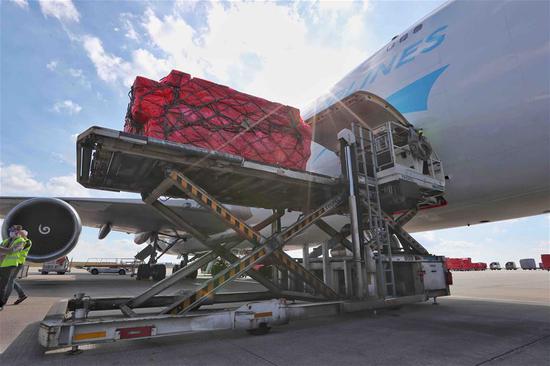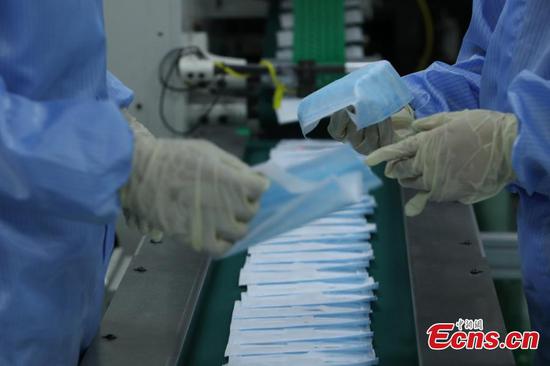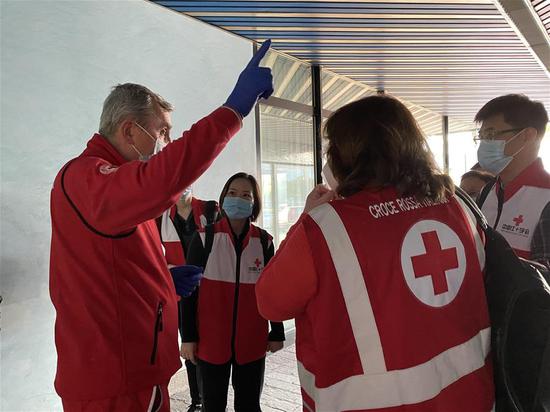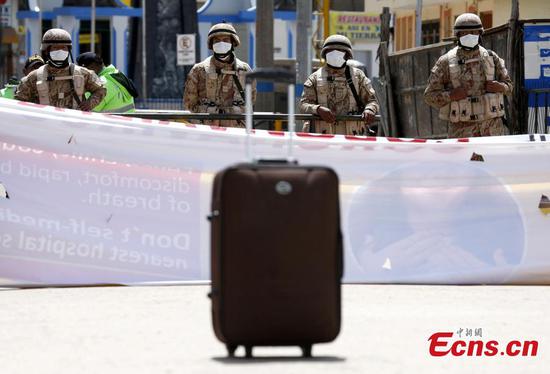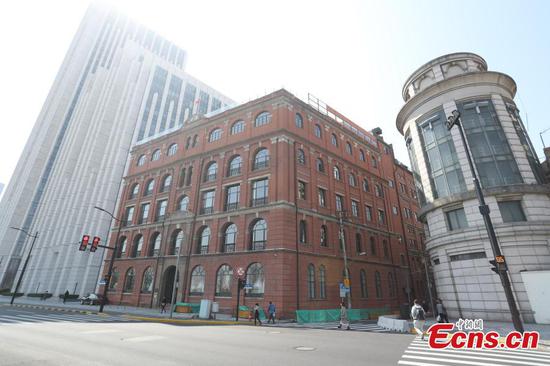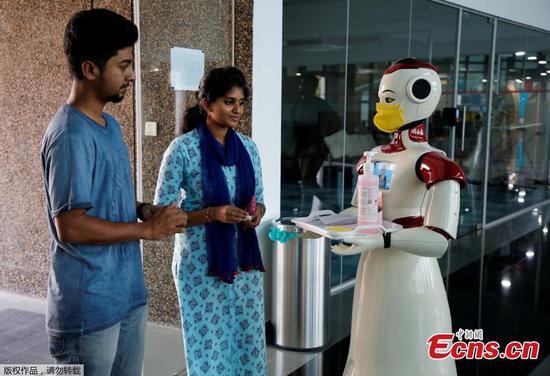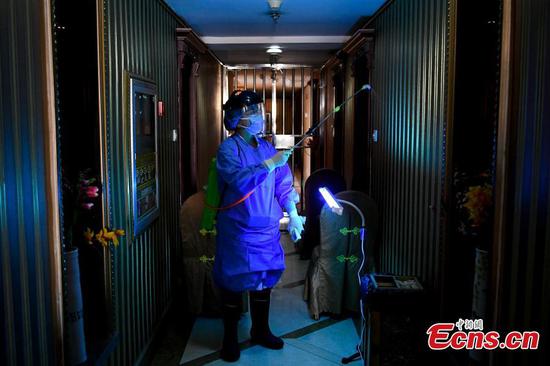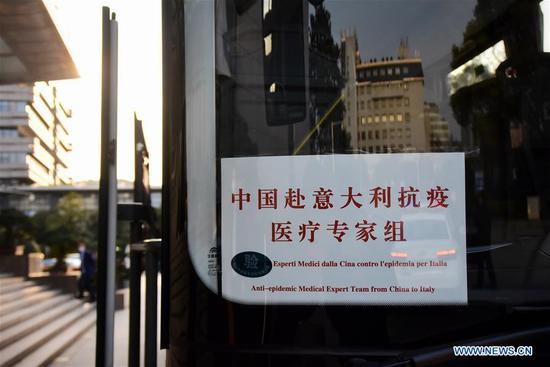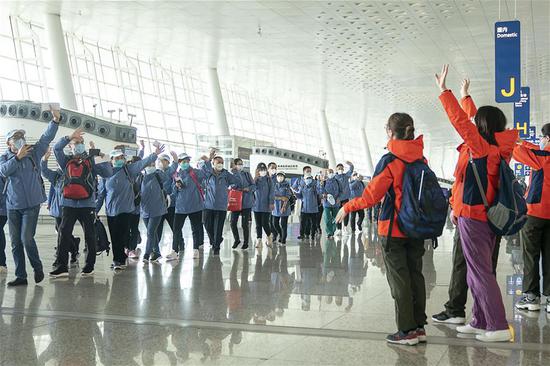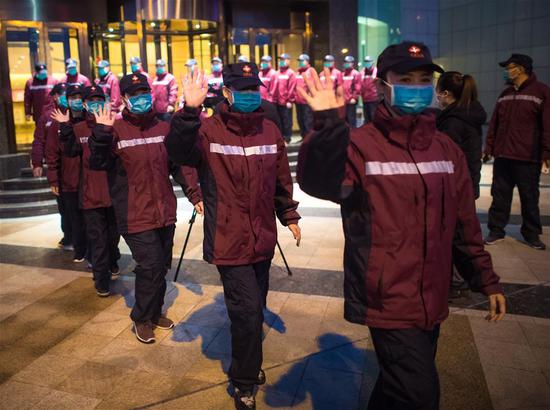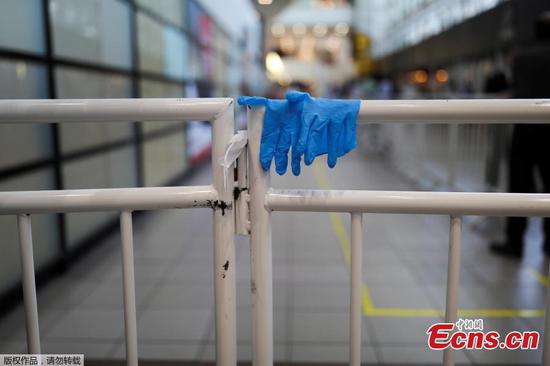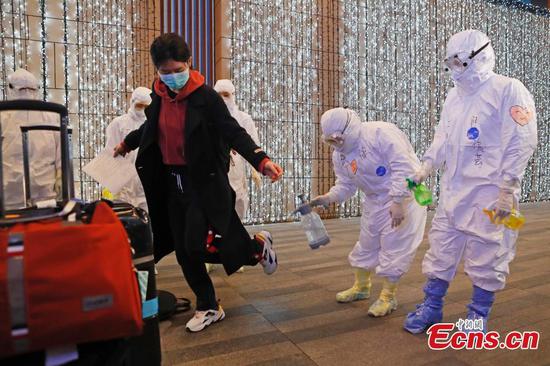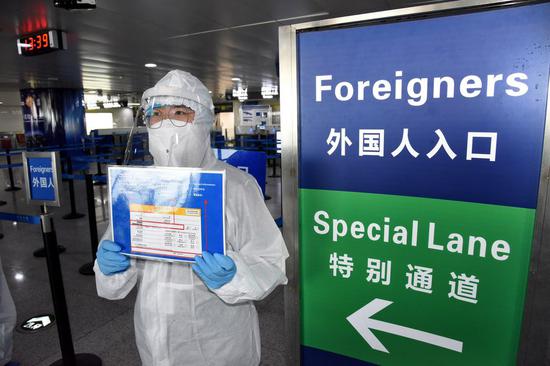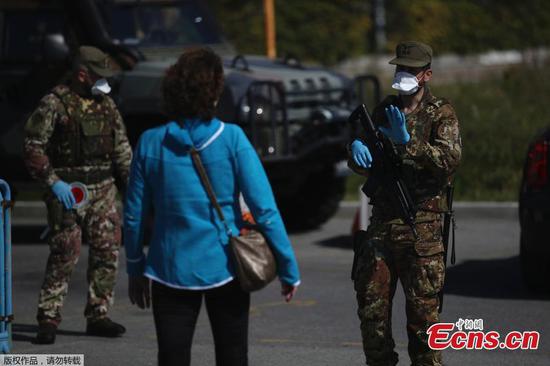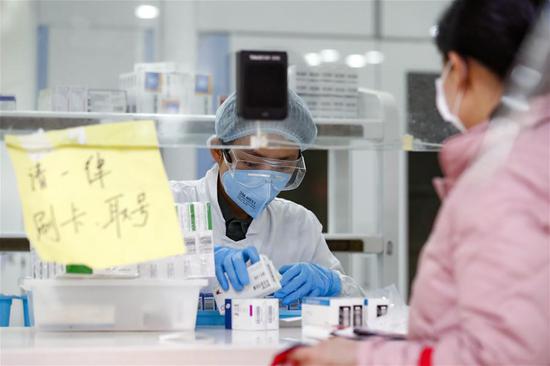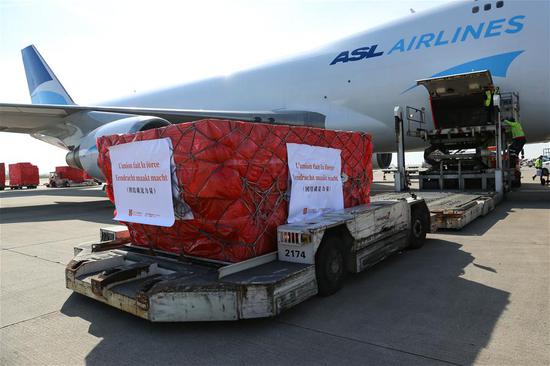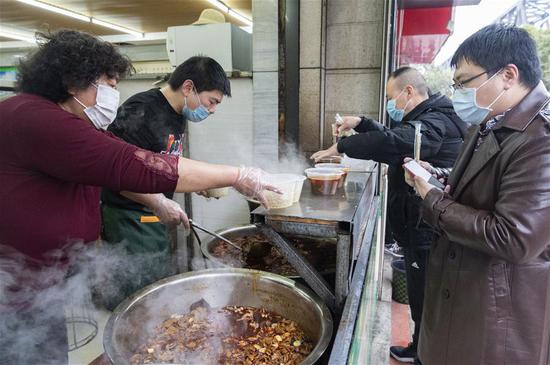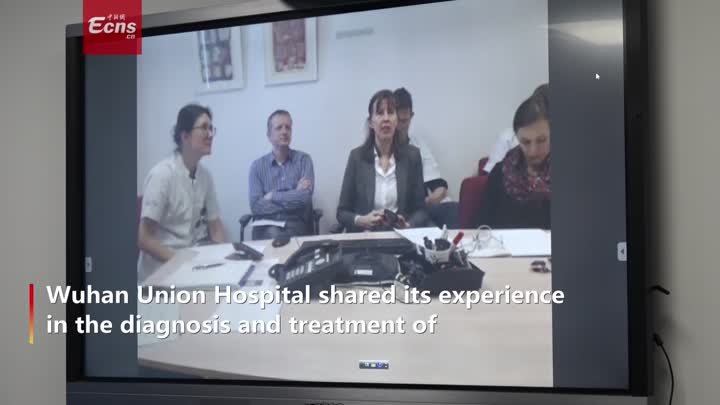
Passengers in protective gear arrive at Hong Kong International Airport on March 18, 2020. (PARKER ZHENG/CHINA DAILY)
Hong Kong saw record 25 new patients of the novel coronavirus on Wednesday — the highest daily increase since its first infection in January — pushing the tally to 192.
Twenty-two of them returned from overseas recently. The total 14 males and 11 females, aged 12 to 64, mostly came back from West Europe, while a few were back from the United States, Japan, Thailand, India or Egypt.
The increase came among thousands rushing back to the city, a day before Hong Kong started to quarantine all arrivals — except for those from Taiwan or Macao. Most of them will be placed under mandatory quarantine at home.
Medical experts suggested overseas arrivals be put under quarantine at hotels instead of home confinement to minimize risk to their family members.
They warned that a large number of overseas returnees, expected to grow from the current level of 10,000 arrivals every day, will subject the city to another major outbreak.
Leung Chi-chiu, chairman of the Advisory Committee on Communicable Diseases under the Hong Kong Medical Association, warned that the large number of returnees will put Hong Kong, with its close international ties, at "the highest risk of local outbreak".
This round of inbound travelers, unlike visitors from the Chinese mainland in the early stage, mostly comprise Hong Kong residents, who have close community connections.
Many of them, especially students back from the United Kingdom, are very likely to have been exposed to the virus during social activities in Europe due to a lack of prevention and poor government controls against the pandemic, Leung said, adding that this time, it is much more challenging to get it under control.
Leung also warned that despite most of them being quarantined at home since Thursday, their family members can still take the virus into the community.
Hence, the expert on the respiratory system suggested the government consider using hotels to quarantine people at high risk, to reduce cross-infections among household members.
He advised the public to avoid any unnecessary social activities, keep a strict level of social distance and maintain personal hygiene.
Agreeing with Leung, Lam Ching-choi, a member of the Executive Council, noted that hotel quarantines have proved feasible in some countries.
The doctor said the government is capable of testing some 1,000 samples a day, which will give priority to people at high risk of infection, such as the elderly, the symptomatic, and those returning from badly affected countries.
Starting from today, the government will take samples from dozens of people considered to be at high-risk of infection on their return from overseas — in a pilot program.
The controller of the Centre for Health Protection of the Department of Health, Wong Ka-hing, told a press briefing that over 10,000 people from overseas had been arriving in Hong Kong each day over the past few days.
In view of the large number of inbound travelers, it is expected that the infections will rise rapidly in the coming one to two weeks, Wong said. He added that this has put great pressure on health authorities and the city's medical resources.
He urged those who beat the quarantine deadline today to voluntarily stay at home for 14 days, and seek timely medical treatment if they feel unwell.
He also advised their family members, especially the elderly, to move out for 14 days if possible.












